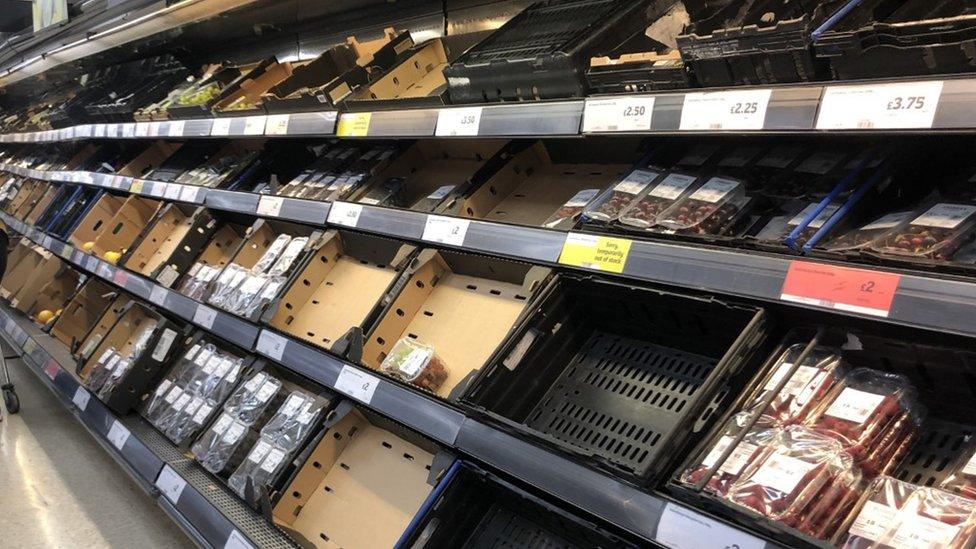Brexit: 'No threat to NI hospitals and schools food supply'
- Published
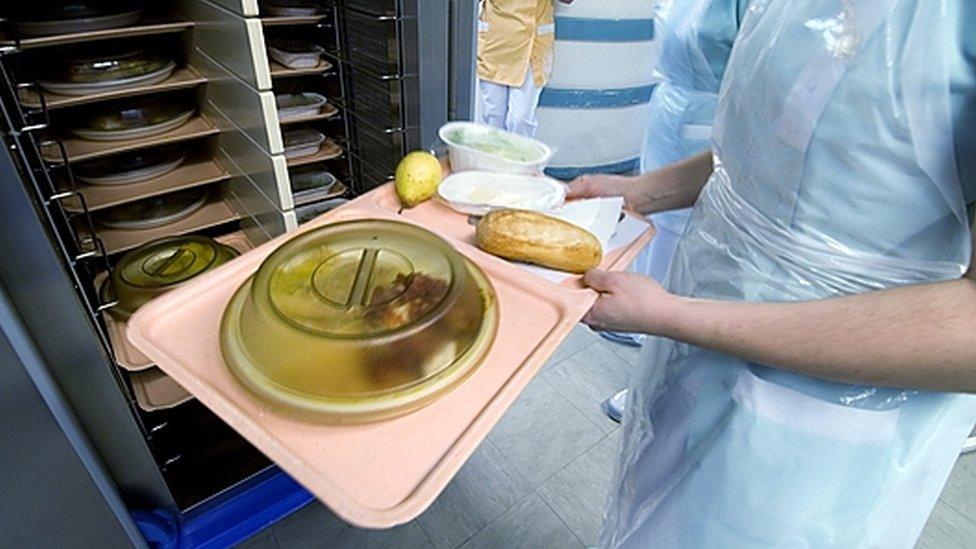
The Department of Health said it had only experienced "some minor delays" in the supply chain
Officials in Northern Ireland have said they have not experienced major disruption to the supply of food to hospitals and schools due to Brexit.
Earlier, the agriculture minister warned that action was needed to avert "a major crisis" over food supplies.
Edwin Poots said difficulties around the Irish Sea border could mean schools and hospitals would not be able to get supplies "in a few months' time".
Food products face strict EU rules when moving from GB to NI.
DUP minister Mr Poots said NI was in an "outrageous situation" due to the Northern Ireland Protocol.
"Whenever it comes to the supermarket side of things it was made very clear to us by the suppliers to both hospitals and schools that if the current arrangement for supermarkets isn't extended in a few months' time that they will not be able to supply our hospitals and schools with food," he told The Nolan Show on BBC Radio Ulster.
"That is a major crisis and I have raised this with [Cabinet Office Minister] Michael Gove, seriously are we going to have a situation where our hospitals and schools are not able to feed the children at school, they [the hospitals] are not able to feed their patients?"
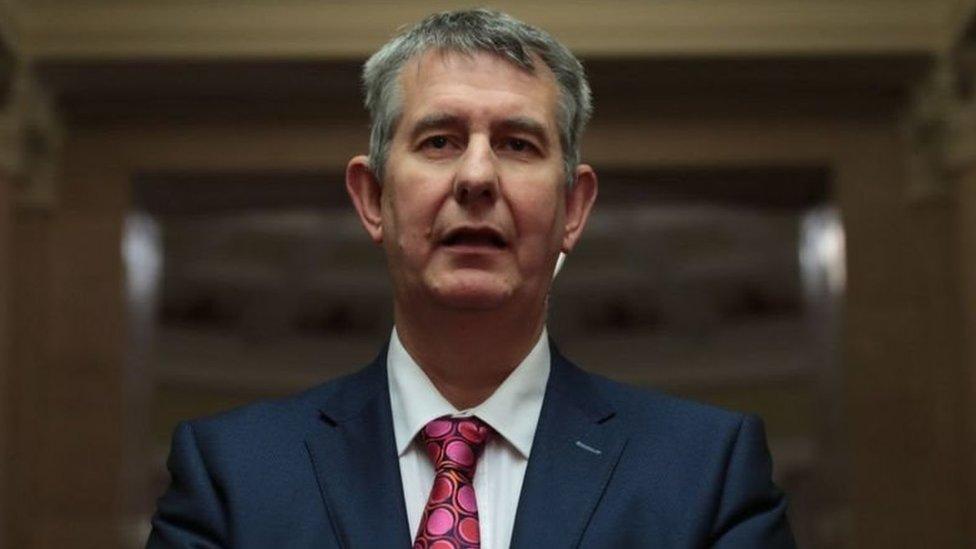
Edwin Poots previously said he had spoken to senior UK government figures to ask them to consider unilaterally revoking the Northern Ireland Protocol
'Minor delays'
In a statement released on Thursday, the Department of Health said it had only experienced "some minor delays".
It added that a small number of products have had to be substituted with equivalents, "but this is only for a temporary period".
The statement said its Business Services Organisation has worked to agree a core list of ambient products of which they have asked suppliers to hold stocks for an additional four to six weeks and that trusts "also stand ready to change menus should that be required".
A spokesperson for the Department of Education said that it had received "no indication from its suppliers of a disruption to the supply chain that would impact delivery of school meals".
The Department of Education said its catering and procurement services within the Education Authority (EA) have held "several meetings with key suppliers during December 2020 and January 2021", and that the only issue brought to their attention was that one product would not be available, but it would be replaced with an alternative product if required.
In a later statement, Mr Poots said while specific issues relating to ready meals and specialised diets had been identified and mitigated, "stakeholders continue to tell me that in the absence of further mitigations being found, the end of three and six month grace periods will present further issues".
"I have raised this issue with the Defra Secretary of State George Eustice and will shortly write to the EU Vice-President Maroš Šefčovič to ask the UK Government and EU to also seek an urgent solution to this matter," he added.
'Delays, not shortages'
Meanwhile, the Henderson Group, which owns Spar shops across Northern Ireland, said it is experiencing "some delays" as opposed to shortages.
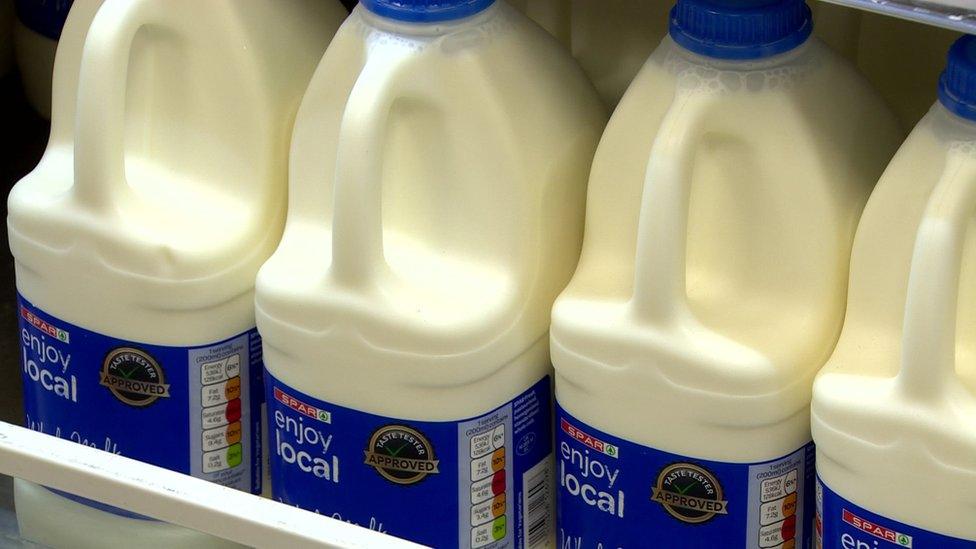
A company spokesperson said it has been engaging with Mr Poots' department and other bodies to ensure disruption to its supply chain is minimised across its food service, wholesale and retail businesses.
"We have been proactively building stocks of ambient and frozen lines over the last three months that should ensure order fulfilment levels are maintained," its statement added.
'Scaremongering'
Alliance deputy leader and North Down MP Stephen Farry accused Mr Poots of "scaremongering on steroids".
"There is no prospect that we are going to see a complete collapse of the food supply in Northern Ireland, it is just not going to happen," he said.

Stephen Farry criticised the comments made by Edwin Poots
SDLP deputy leader and Infrastructure Minister Nichola Mallon also said Mr Poots was scaremongering.
The UK officially finished its formal separation from the EU on 31 December, 2020.
Since then there has been some disruption to trade across the Irish Sea border.
Northern Ireland remains in the EU single market for goods and will continue to enforce EU customs rules at its ports.
The Irish Sea border means that most commercial goods entering NI from GB require a customs declaration.
A three-month "grace period" means that supermarkets currently don't need to comply with all the EU's usual certification requirements, but this will run out in April.
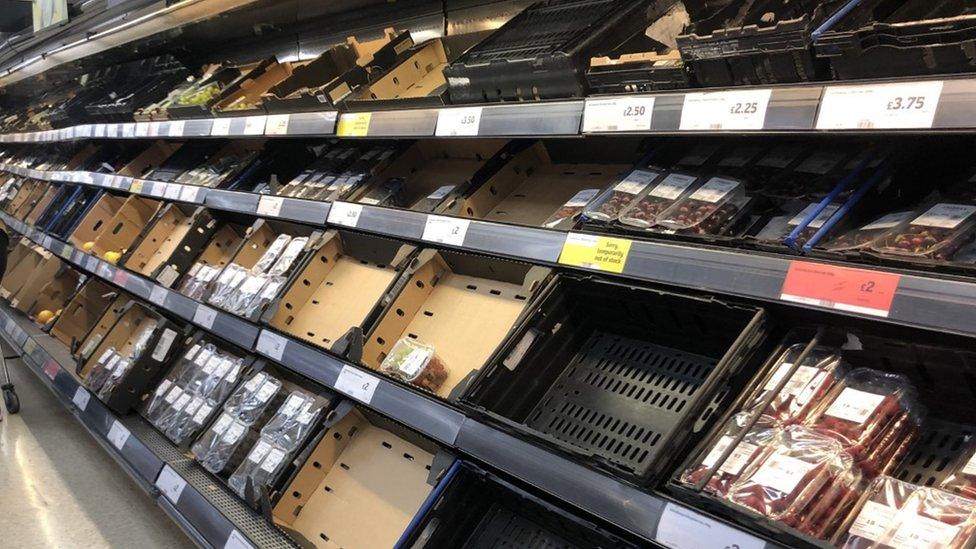
Many items were missing from the fresh food aisle at this Sainsbury's in Belfast on Monday
DUP Westminster leader Sir Jeffrey Donaldson said there would be another meeting with Cabinet Minister Michael Gove to discuss the issue on Friday.
'An insult'
The UK's major supermarkets have warned the government that an "urgent intervention" is needed to prevent further disruption to NI food supplies.
The chief executives of Tesco, Sainsbury's, Asda, Iceland, Co-Op and Marks & Spencer have written to Mr Gove.
Meanwhile Stena Line has moved one of its ferries from Belfast to Rosslare in what it has called a "Brexit-busting move".
When the Stena Embla arrived in Belfast on 2 January the company said it would be concentrating on transporting freight between Belfast and Liverpool.
However, on Wednesday the company tweeted that it would be deployed on the Rosslare to Cherbourg route.
Related topics
- Published14 January 2021
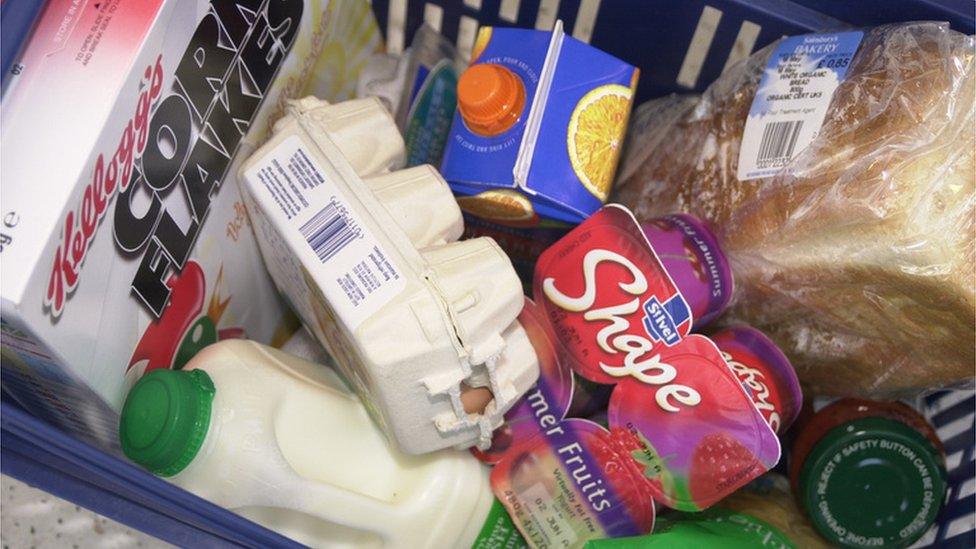
- Published13 January 2021
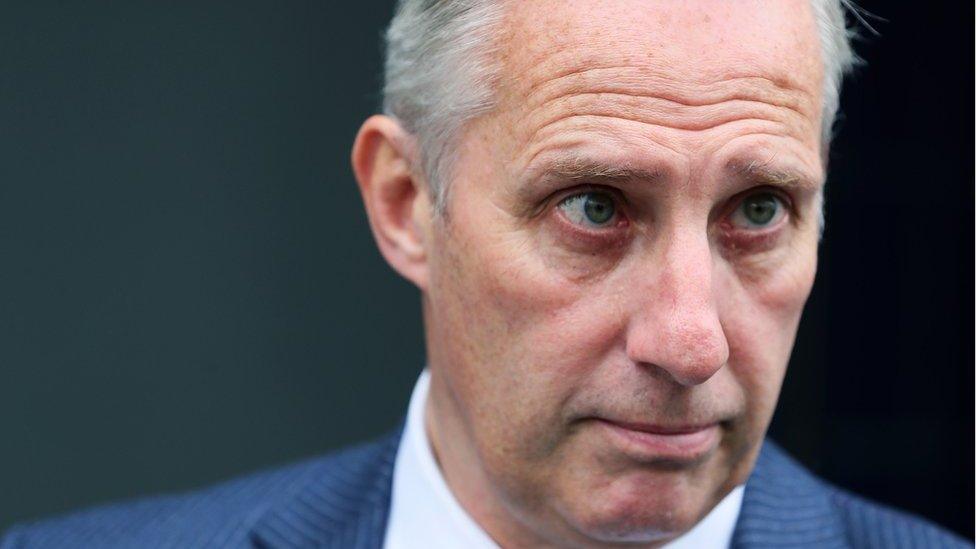
- Published14 January 2021
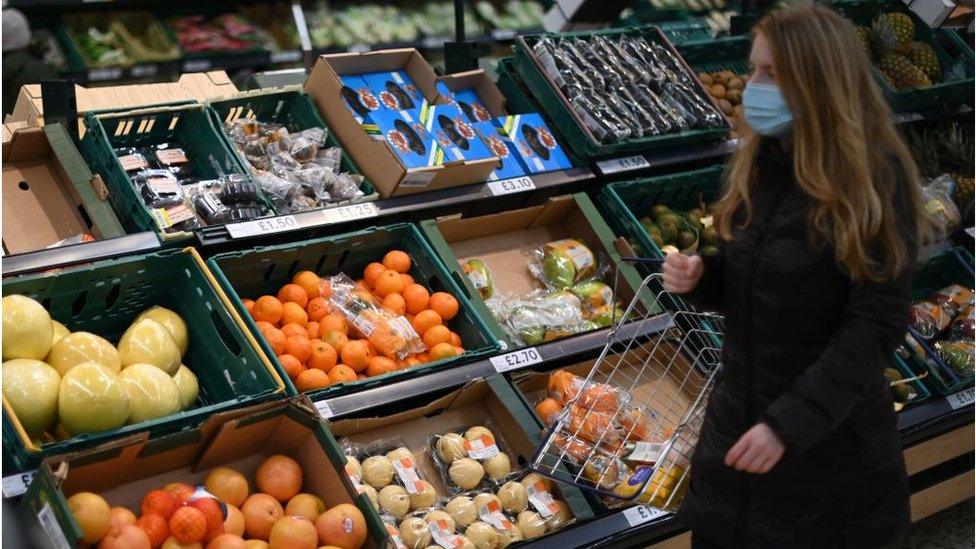
- Published12 January 2021
